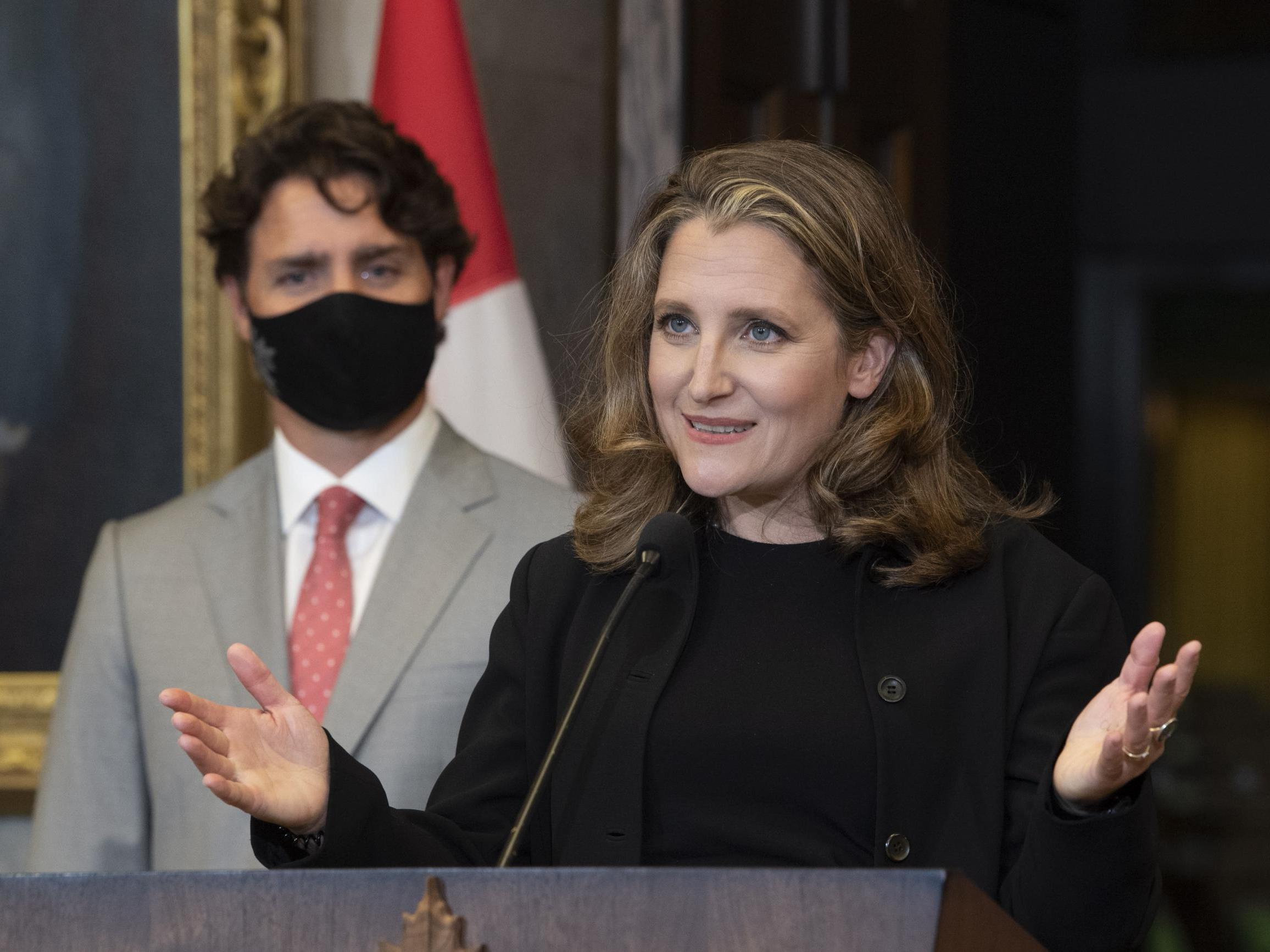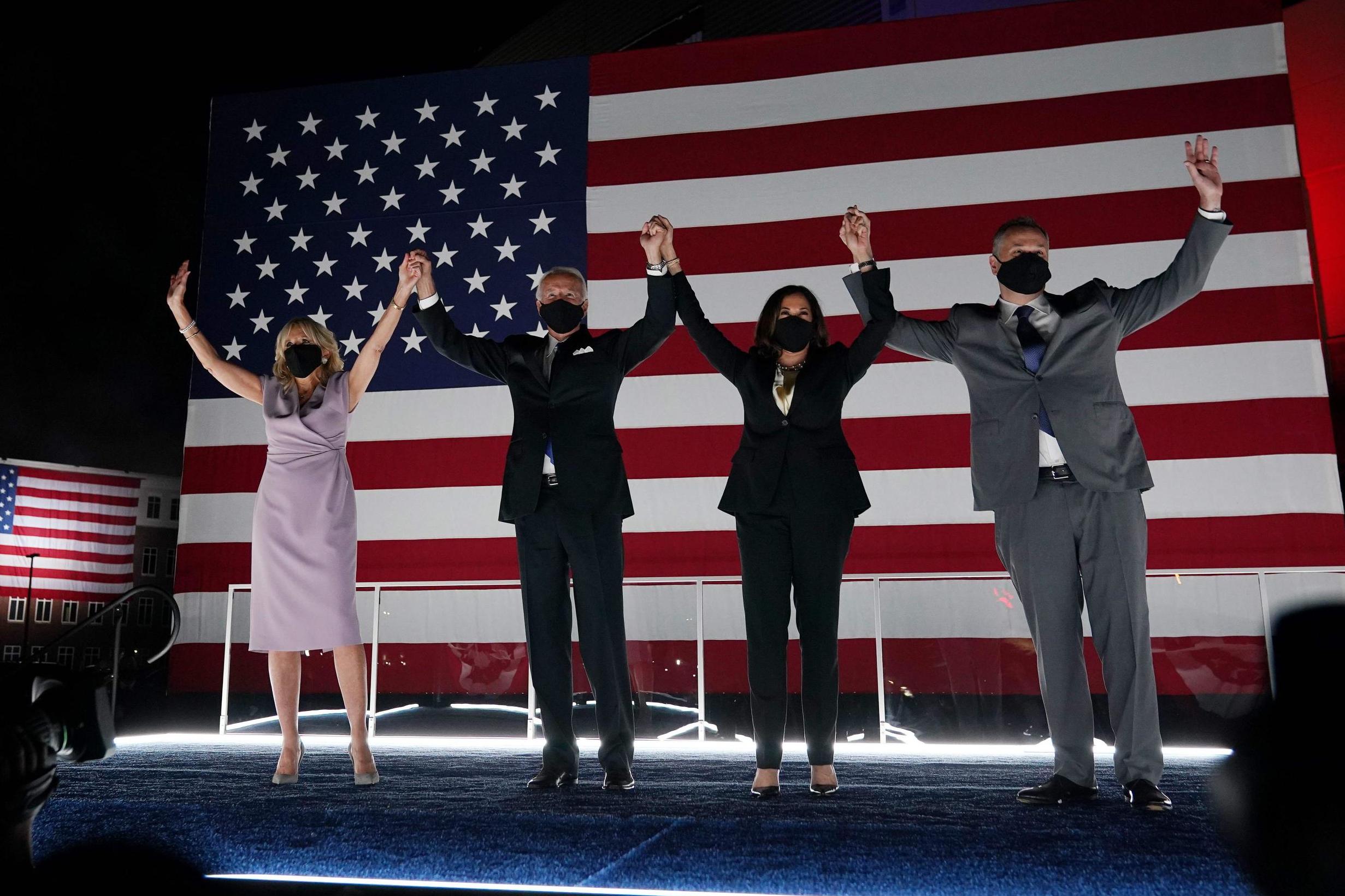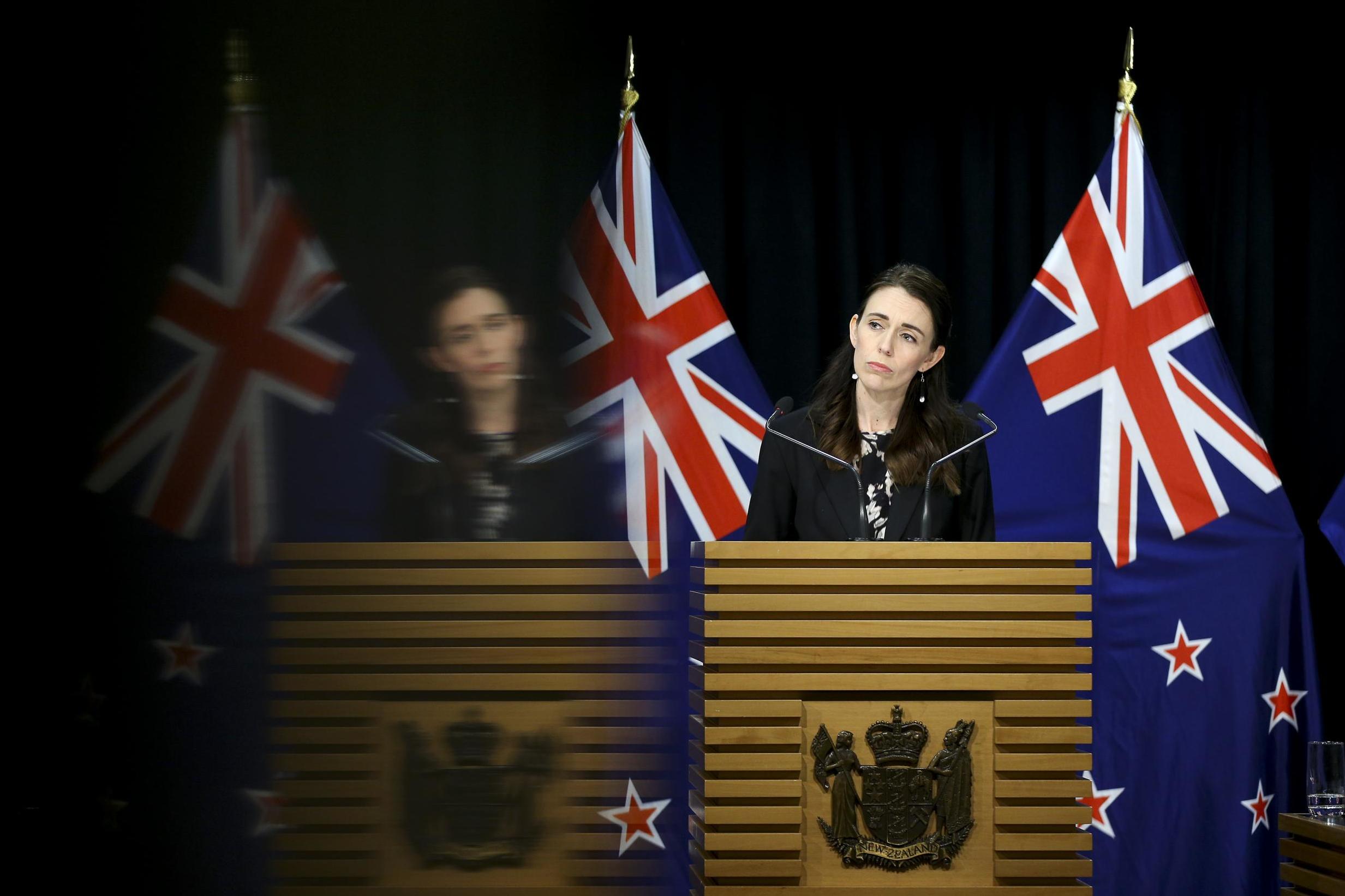Why women leaders like Kamala Harris and Chrystia Freeland are so important right now
Their appointments are necessary in these troubling times, argues Peggy Nash

Your support helps us to tell the story
From reproductive rights to climate change to Big Tech, The Independent is on the ground when the story is developing. Whether it's investigating the financials of Elon Musk's pro-Trump PAC or producing our latest documentary, 'The A Word', which shines a light on the American women fighting for reproductive rights, we know how important it is to parse out the facts from the messaging.
At such a critical moment in US history, we need reporters on the ground. Your donation allows us to keep sending journalists to speak to both sides of the story.
The Independent is trusted by Americans across the entire political spectrum. And unlike many other quality news outlets, we choose not to lock Americans out of our reporting and analysis with paywalls. We believe quality journalism should be available to everyone, paid for by those who can afford it.
Your support makes all the difference.North America has just experienced a groundbreaking week with great excitement about two appointments that shatter glass ceilings.
In the United States, Senator Kamala Harris, former California attorney general, was nominated on 11 August as the running mate for 77-year-old Democratic presidential nominee Joe Biden. Harris is the third woman be nominated for such a position, and as the daughter of Indian and Jamaican parents, she is the first racialised woman.
Seven days later, Chrystia Freeland was named the first woman finance minister in Canada. I had dreamt that I would be the one breaking through that particular glass ceiling when I was the official opposition finance critic for the New Democratic Party. It was not to be, but I am delighted for Freeland. There have been women who have run the finances in Canada’s provinces, but never federally, until now. These changes offer hope to girls and young women everywhere.
But change takes such an awfully long time. As we look around the world, there are only 16 elected world leaders who are women — about 10 per cent. Neither Canada nor the US has ever had a woman elected to the very top position. Corporate board rooms don’t fare much better: the proportion of male CEOs globally far outweighs the proportion of women CEOs.
Both Harris and Freeland assume their positions in the midst of troubling times, leading some to ask, why does it take a crisis to promote women? And the answer seems to be because they perform very well.
The current US administration has mismanaged its response to the Covid-19 pandemic, which has resulted in more cases and deaths than any other country. The Black Lives Matter protests have challenged the racialised impact of policing and the continued dominance of white privilege in political, corporate, economic and social life. In the US, there are fears that their very democracy is at risk due to the actions of President Trump.

Harris breathes life, generational change, energy and excitement into the Democratic campaign to win back the presidency. She should motivate progressive, young, racialised and women voters to get out and unseat the current president. And while her nomination in this election is ground-breaking, if she can make it to the next level, to the presidency, she may well help the United States fully recover from its bout of ill temper and instability.
Even with a gender-equal cabinet, Canada ranks 61st in the world for the representation of women in national parliaments. This is shameful
Here, in Canada, how unfortunate that the Liberal government is mired in its third major ethics scandal. Having been found in violation of ethics rules twice before, the prime minister was desperate to change the political channel. But just when the government released thousands of documents about a scandal involving state funding and the charity WE, the former finance minister, Bill Morneau, resigned. Freeland, a former journalist and author, then replaced him; she remains as the deputy prime minister.
Freeland has demonstrated her negotiating chops in renewing the North American Free Trade Agreement (NAFTA) and as the point person on intergovernmental affairs. She is talented, competent and experienced. She can do the finance job, and many are seeing her as a future prime minister — so it’s sad that she is seen by some as a political fig leaf.

Without question, both Harris and Freeland are strong, accomplished and up to their new jobs. Perhaps this is the best time to call in the women to fix so much of what is wrong with politics. Some argue that if we compare the record of women leaders during the pandemic, these women perform very well, especially when compared with strongman leaders.
Even with a gender-equal cabinet, Canada ranks 61st in the world for the representation of women in national parliaments. This is shameful and we need to elect more women MPs who represent the broad diversity of Canada.
But history is not destiny.
Looking around the world, there is a new generation of women leaders such as Jacinda Ardern in New Zealand and Sanna Marin and her coalition of five young women leaders in Finland, who have been providing excellent leadership.
Whether in Canada, the US, New Zealand or Finland, we expect that this next generation will not only aspire to power for themselves, but they will open the doors of power to better representation. Enough of shattering glass ceilings: just equality please.
Peggy Nash is a senior advisor to the Dean of Arts at Ryerson University, Toronto. This article first appeared on The Conversation
Join our commenting forum
Join thought-provoking conversations, follow other Independent readers and see their replies
Comments